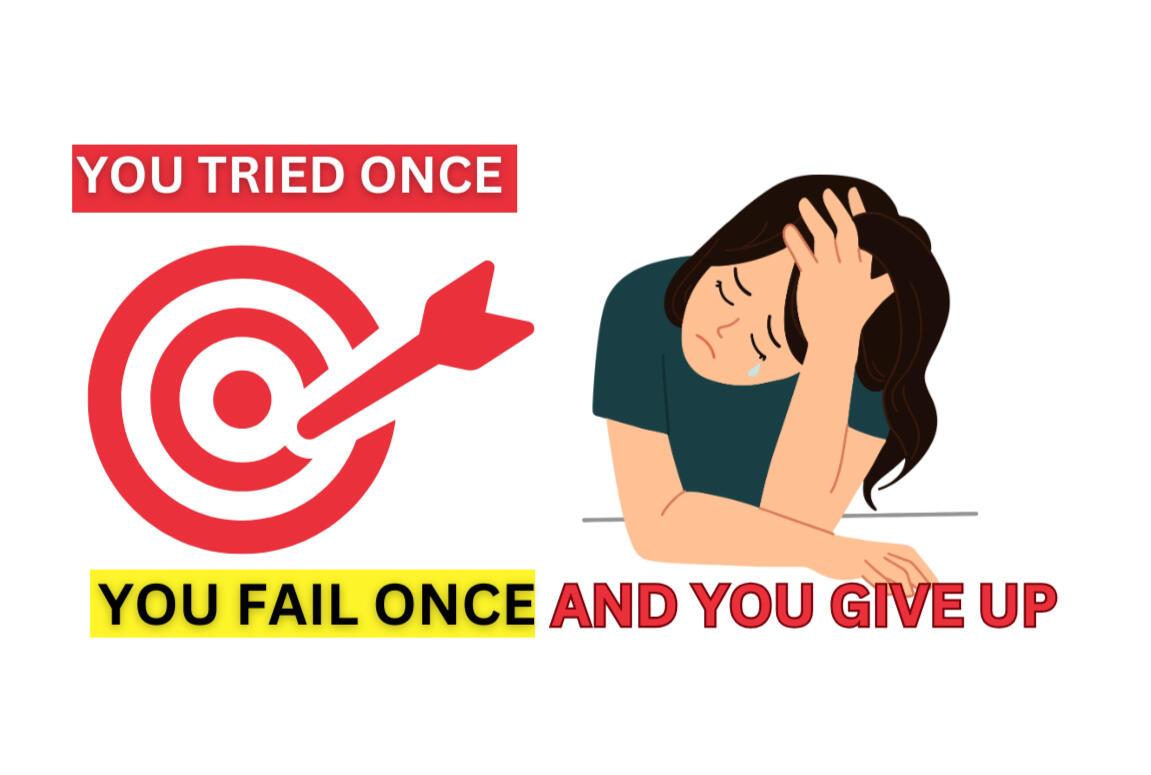Dan Forge
10 REASONS WHY BUSINESS FAIL AND SOLUTIONS
One of the top reasons businesses fail is because they assume every venture is a quick path to wealth.

Many entrepreneurs dive in with dreams of quick wins, only to realize that building a sustainable business takes time, effort, and resilience. They often underestimate their audience, creating products or services without truly understanding what their customers need or want. In a crowded market, they struggle to stand out, blending in instead of showcasing what makes them unique. Marketing efforts are inconsistent or poorly planned, leading to wasted resources and missed opportunities. A weak online presence like a outdated website or inactive social media turns potential customers away. Ignoring feedback leaves them disconnected from their audience, while trying to do everything alone leads to burnout and inefficiency. Resistance to change keeps them stuck in outdated strategies, and poor financial management drains their resources. The truth is, success isn’t about luck, it’s about avoiding these pitfalls and staying committed to the journey.
REASON WHY BUSINESS FAIL
1. NO CLEAR VISION

NO CLEAR VISION
Flying blind without goals or a plan is like driving without a destinationyou’ll burn fuel but never arrive. A business without a clear vision lacks direction and purpose. Entrepreneurs often jump into ideas without defining what success looks like or how to achieve it. This leads to wasted time, resources, and energy on activities that don’t move the needle. A clear vision acts as a roadmap, guiding every decision and keeping the business focused on what truly matters.Solution: Define your mission, values, and long-term goals. Create a simple business plan outlining actionable steps to achieve them. Regularly revisit and refine your vision to stay aligned with your purpose.
2. IGNORING YOUR AUDIENCE

IGNORING YOUR AUDIENCE
If you don’t know who you’re talking to, your message will fall on deaf ears. Many businesses make the mistake of creating products or services without understanding their target audience’s needs, preferences, or pain points. They assume they know what customers want, only to find out their offerings don’t resonate. Without a deep understanding of your audience, your marketing efforts will miss the mark, and your business will struggle to connect with the people who matter most.Solution: Conduct market research, engage with your audience, and create customer personas. Regularly ask for feedback and tailor your offerings to solve their specific problems.
3. BLENDING IN, NOT STANDING OUT

Blending In, Not Standing Out
In a sea of competition, being forgettable is a death sentence. Many businesses fail because they don’t differentiate themselves from competitors. They offer the same products, use the same messaging, and fail to communicate what makes them unique. Without a strong Unique Selling Proposition (USP) or a compelling brand story, they become just another option in a crowded marketplace. Standing out isn’t just about being different, it’s about being memorable and valuable to your audience.Solution: Identify your Unique Selling Proposition (USP). Highlight what makes you different whether it’s quality, service, or innovation and consistently communicate it through branding and messaging.
4. INCONSISTENT MARKETING

INCONSISTENT MARKETING
Posting randomly or quitting too soon is like planting seeds but never watering them. Many businesses start strong with marketing efforts but lose momentum when they don’t see immediate results. They post sporadically on social media, run ads without a clear strategy, or abandon campaigns too early. Inconsistent marketing sends mixed signals to your audience and makes it harder to build trust and recognition. Success in marketing requires consistency, patience, and a long-term perspective.Solution: Develop a marketing calendar and stick to it. Focus on platforms where your audience is most active. Track results, adjust strategies, and stay consistent to build trust and visibility.
5. A WEAK ONLINE PRESENCE

A WEAK ONLINE PRESENCE
A bad website or inactive social media is like a store with a “Closed” sign customers walk away. In today’s digital first world, your online presence is often the first impression customers have of your business. A poorly designed website, outdated content, or inactive social media profiles can turn potential customers away before they even engage with your brand. Your online presence should be professional, user-friendly, and reflective of your brand’s values and personality.Solution: Invest in a professional, mobile-friendly website and active social media profiles. Regularly update content, engage with followers, and ensure your online presence reflects your brand’s identity.
6. NOT LISTENING TO CUSTOMERS

NOT LISTENING TO CUSTOMERS
Ignoring feedback is like refusing to fix a leaky roof eventually, the whole house collapses. Customers are the lifeblood of any business, yet many entrepreneurs fail to listen to them. Whether it’s dismissing complaints, ignoring reviews, or not seeking feedback, this disconnect can lead to poor customer experiences and low retention rates. Listening to your customers isn’t just about solving problems, it’s about building trust, loyalty, and a brand that truly serves its audience.Solution:Actively seek feedback through surveys, reviews, and direct communication. Address concerns promptly and use insights to improve your products, services, and customer experience.
7. TRYING TO DO IT ALL ALONE

TRYING TO DO IT ALL ALONE
Wearing too many hats leads to burnout, mistakes, and missed opportunities. Many entrepreneurs try to handle everything themselves, from marketing to operations to customer service. While it’s tempting to save money by doing it all, this approach often leads to inefficiencies, errors, and exhaustion. Building a successful business requires collaboration, delegation, and leveraging the expertise of others. Trying to do it all alone is a recipe for frustration and failure.Solution: Delegate tasks to skilled team members or outsource to experts. Focus on your strengths and prioritize tasks that drive growth. Collaboration is key to scaling efficiently.
8. EXPECTING OVERNIGHT SUCCESS

EXPECTING OVERNIGHT SUCCESS
Building a business is a marathon, not a sprint. Impatience kills momentum. Many entrepreneurs start with dreams of quick wins and instant results, only to feel discouraged when success doesn’t come easily. The reality is that building a sustainable business takes time, effort, and persistence. Overnight success is a myth, real growth happens through consistent effort, learning from failures, and staying committed to the journey.Solution: Set realistic expectations and celebrate small wins. Focus on steady progress, learn from setbacks, and stay committed to long-term goals. Patience and persistence pay off.
9. RESISTING CHANGE

RESISTING CHANGE
Sticking to outdated strategies in a fast-changing world is like using a flip phone in the smartphone era. Markets, trends, and customer preferences evolve, but many businesses resist adapting to these changes. They cling to what worked in the past, even when it’s no longer effective. In a dynamic business environment, flexibility and adaptability are key to staying relevant and competitive. Resisting change can leave your business stagnant and irrelevant.Solution: Stay informed about industry trends and customer preferences. Be open to experimenting with new strategies, technologies, and processes to stay competitive and relevant.
10. MISMANAGING MONEY

MISMANAGING MONEY
Overspending, underpricing, or ignoring cash flow is like trying to fill a bucket with a hole in it. Financial mismanagement is one of the most common reasons businesses fail. Whether it’s overspending on unnecessary expenses, setting prices too low to cover costs, or failing to track cash flow, poor financial decisions can cripple a business. Money is the fuel that keeps your business running without proper management, even the best ideas can run out of gas.Solution: Create a budget, track expenses, and monitor cash flow regularly. Price your products/services to cover costs and generate profit. Seek financial advice if needed to ensure sustainable growth.
Turning Challenges into Opportunities
The journey of entrepreneurship is filled with challenges, but understanding why businesses fail is the first step toward building one that thrives. Whether it’s a lack of vision, ignoring your audience, or mismanaging money, these pitfalls are not roadblocks they’re lessons waiting to be learned. Every failed business carries valuable insights that can guide your path to success.The key is to stay proactive, adaptable, and committed. Learn from mistakes, listen to your customers, and never stop refining your strategies. Remember, the most successful businesses aren’t built overnight they’re the result of persistence, resilience, and a willingness to grow.If you’re feeling stuck or overwhelmed, know that you’re not alone. Every entrepreneur faces setbacks, but with the right mindset and support, you can turn these challenges into stepping stones for success.Your business has the potential to thrive let’s make it happen.